
Christopher Crockett is an Associate News Editor. He was formerly the astronomy writer from 2014 to 2017, and he has a Ph.D. in astronomy from the University of California, Los Angeles.

Trustworthy journalism comes at a price.
Scientists and journalists share a core belief in questioning, observing and verifying to reach the truth. Science News reports on crucial research and discovery across science disciplines. We need your financial support to make it happen – every contribution makes a difference.
All Stories by Christopher Crockett
-
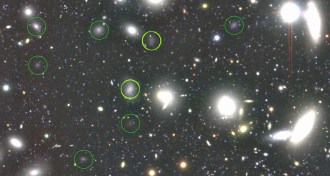 Astronomy
AstronomyDark galaxies grow in abundance
Nearly 1,000 shadowy galaxies lurk in a nearby cluster, some of which are as massive as the Milky Way and yet have only 0.1 percent the number of stars.
-
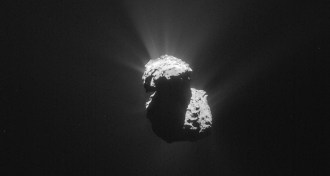 Planetary Science
Planetary ScienceRosetta mission extended until September 2016
The Rosetta spacecraft will explore comet 67P through September 2016 and then may go to sleep on the comet’s surface.
-
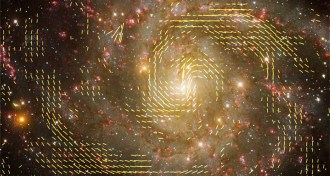 Astronomy
AstronomyMagnetic ‘glue’ helps shape galaxies
Galaxy-wide magnetic fields may play a role in shaping the spiral arms of gas and stars.
-
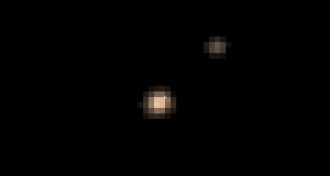 Planetary Science
Planetary SciencePluto and Charon’s orbital dance captured in color
New Horizons has captured the first true-color movie of Pluto and Charon orbiting one another.
-
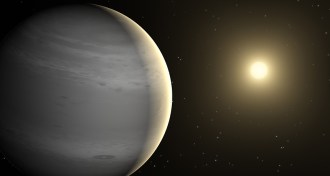 Astronomy
AstronomyBig exoplanet may be surrounded by helium
Warm Neptune-sized exoplanet might have atmospheres filled with helium.
-
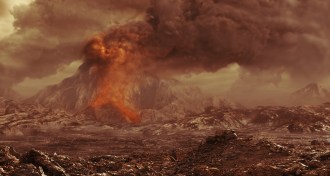 Planetary Science
Planetary ScienceEvidence mounts for active volcanoes on Venus
The Venus Express orbiter detected possible signs of active volcanism on the planet next door.
-
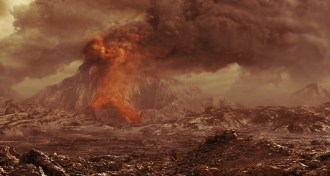 Planetary Science
Planetary ScienceEvidence mounts for active volcanoes on Venus
The Venus Express orbiter detected possible signs of active volcanism on the planet next door.
-
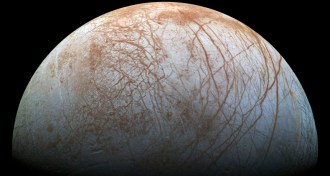 Planetary Science
Planetary ScienceNASA moves ahead with a mission to Europa
A NASA mission slated for the 2020s to Jupiter’s icy moon will try to figure out if the ocean there is habitable.
-
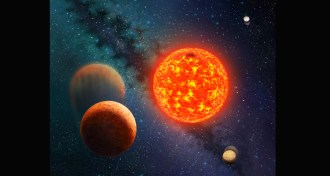 Astronomy
AstronomyMars-sized exoplanet is smallest to have its mass measured
The smallest exoplanet to be weighed is a hot, rocky cousin of the Red Planet.
-
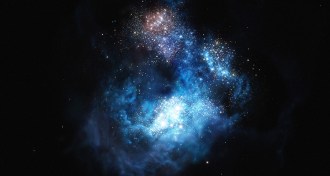 Astronomy
AstronomyDistant galaxy may contain primeval stars
A stockpile of the first generation of stars might be lighting up gas in a galaxy that existed roughly 800 million years after the Big Bang.
-
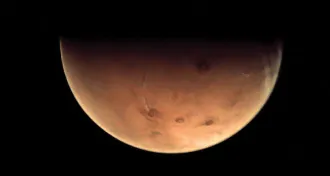 Planetary Science
Planetary ScienceMethane found in meteorites from Mars
Methane stored in Martian meteorites points to possibly habitable environments beneath the surface of the Red Planet.
-
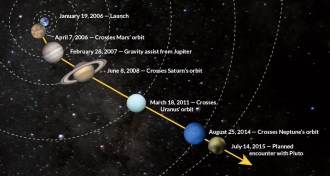 Planetary Science
Planetary ScienceRendezvous with Pluto
Earth will get its first good look at Pluto and its five known moons when New Horizons sails past on July 14.